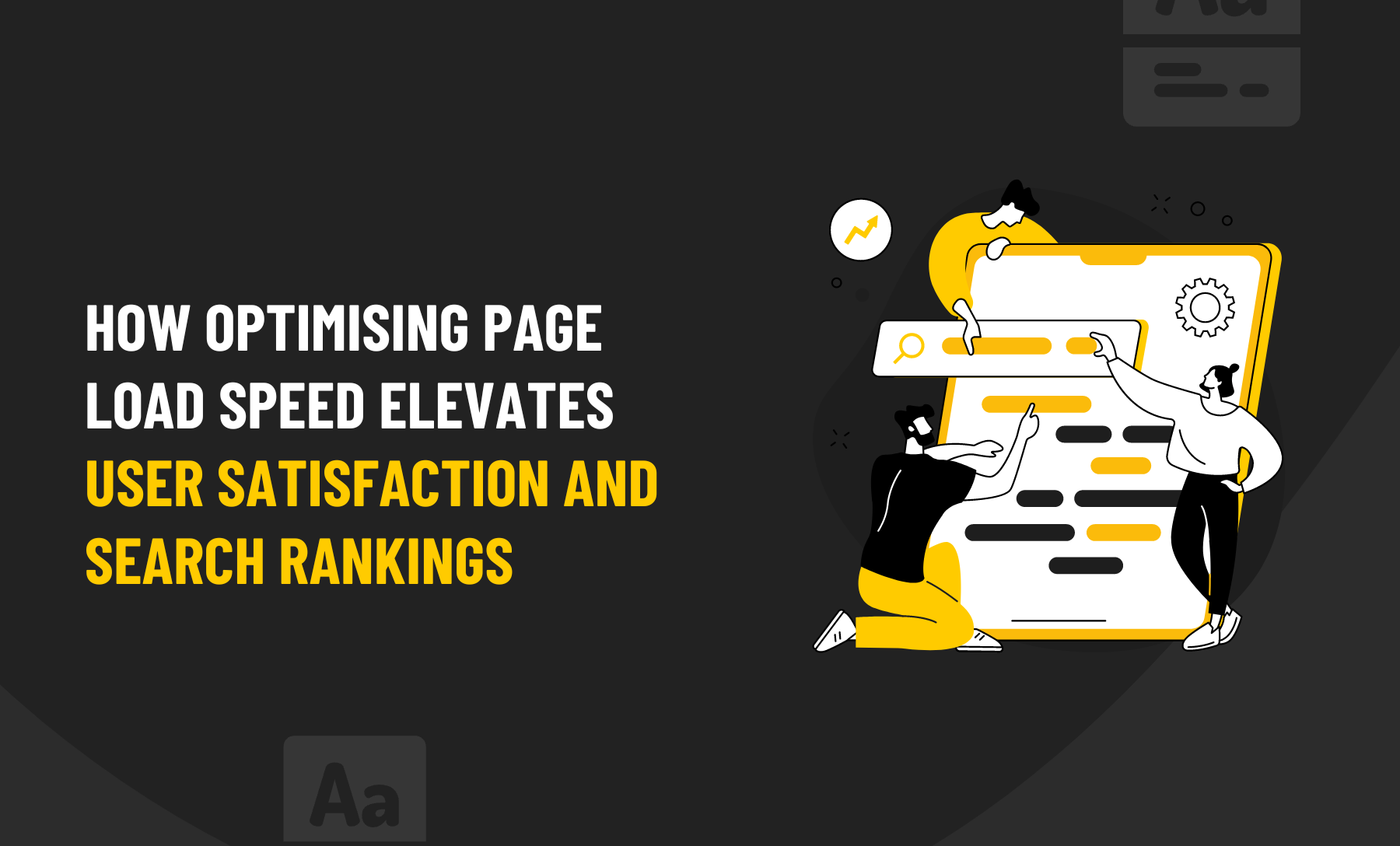From Slow to Pro: How Optimising Page Load Speed Elevates User Satisfaction and Search Rankings
The Impact of Page Load Speed on User Satisfaction
The impact of page load speed on user satisfaction cannot be overstated. In today’s digital landscape, where instant access to information is the norm, users have little patience for slow-loading websites. Numerous studies have shown that slow load times lead to higher bounce rates, lower engagement, and decreased conversion rates.
When users click on a link or enter a website’s URL, they expect the content to appear quickly. According to research, 53% of mobile users abandon a webpage if it takes more than three seconds to load. This means that if your website is slow to load, more than half of your potential visitors could leave before even seeing your content.
In addition to user satisfaction, page load speed impacts other crucial metrics, such as conversions. Studies have shown that even a one-second delay in page load time can result in a 7% reduction in conversions. This means that optimising your website’s load speed can directly impact your bottom line and business success.
Optimising page load speed is vital for ensuring user satisfaction. By delivering fast-loading webpages, you provide users with a positive experience that keeps them engaged and encourages them to take the desired actions on your website. It is crucial to prioritise load speed optimisation to maintain a competitive edge in today’s digital landscape, where user expectations for speed and efficiency are higher than ever before.
The Connection between Page Load Speed and Search Rankings
Page load speed is indeed an important factor that can affect search rankings. Search engines, particularly Google, consider various factors when determining the ranking of web pages in search results. One of these factors is the user experience, and page load speed is a significant aspect of that experience. Here’s how page load speed can influence search rankings:
User satisfaction
Fast-loading web pages provide a better user experience, as visitors can quickly access the information they seek. Slow-loading pages, on the other hand, can frustrate users and lead to higher bounce rates (when visitors leave a site shortly after arriving). Search engines aim to provide the best possible results to their users, so they prioritise pages that offer a positive user experience.
Mobile optimisation
With the increasing use of mobile devices for internet browsing, search engines prioritise websites optimised for mobile devices. Mobile users often have slower internet connections than desktop users, so fast-loading pages are crucial for mobile optimisation. If your website is slow on mobile devices, it may negatively impact your search rankings.
Crawl budget
Search engines allocate a certain crawl budget to each website, determining how often and how deeply they crawl your site’s pages. If your pages take a long time to load, search engines may wait longer for your pages to load instead of crawling and indexing more of your content. This can result in fewer pages being indexed, potentially impacting your search results visibility.
How can Page Load Speed Optimization Boost User Satisfaction and Search Rankings?
Page load speed optimisation can significantly boost both user satisfaction and search rankings. Let’s explore how it accomplishes these goals:
Improved User Satisfaction:
- Faster Loading Times: When a website loads quickly, users can access the desired content without delay, resulting in a seamless browsing experience. Fast-loading pages reduce frustration, enhance usability, and provide a positive impression of your website or brand.
- Enhanced User Engagement: Users are more likely to stay engaged and explore your website when they are not held back by slow load times. With quick access to information, they can navigate effortlessly and find what they need, leading to increased engagement, longer session durations, and lower bounce rates.
- Mobile-Friendly Experience: With the rise of mobile usage, optimising page load speed becomes even more critical. Mobile users often have limited bandwidth and slower internet connections, making fast load times crucial for a positive mobile experience. By catering to mobile users’ needs, you can improve user satisfaction and tap into a significant portion of your target audience.
Improved Search Rankings:
- User Experience Signals: Search engines like Google value user experience as a ranking factor. Page load speed is considered a crucial aspect of user experience. When your website loads quickly, it enhances user satisfaction, reduces bounce rates, and signals to search engines that your website provides a positive user experience. This, in turn, can improve your search engine rankings.
- Mobile-Friendliness: In recent years, Google has placed increasing importance on mobile-friendliness as a ranking factor. Since page load speed is a critical component of a mobile-friendly experience, optimising it can positively impact your website’s search rankings, especially in mobile search results.
- Reduced Abandonment and Improved Crawling: Slow-loading pages often lead to higher abandonment rates, as users are more likely to leave if they encounter delays. When search engines crawl your website, they may also face similar frustrations. Optimising page load speed ensures that search engine bots can efficiently crawl and index your web pages, leading to better visibility in search results.

Conclusion
In today’s digital landscape, where speed and efficiency are paramount, optimising page load speed has become essential for website owners and online businesses. By focusing on improving the speed at which your web pages load, you can significantly enhance both user satisfaction and search engine rankings, resulting in a better overall online presence.
Optimising page load speed directly impacts user satisfaction. Users have increasingly high expectations for fast-loading websites, and any delay can lead to frustration and abandonment. By prioritising speed, you can provide visitors with a seamless browsing experience, encouraging engagement, reducing bounce rates, and improving conversion rates. Fast-loading pages keep users happy, allowing them to quickly access the information they seek and effortlessly navigate your site.
Ready to optimise your page load speed? Contact our team of experts today for personalised guidance and solutions. Let us help you enhance your website’s performance, improve user satisfaction, and boost your search rankings. Take the first step towards a faster and more successful online presence.
Was this article helpful? Let us know in the comments!








